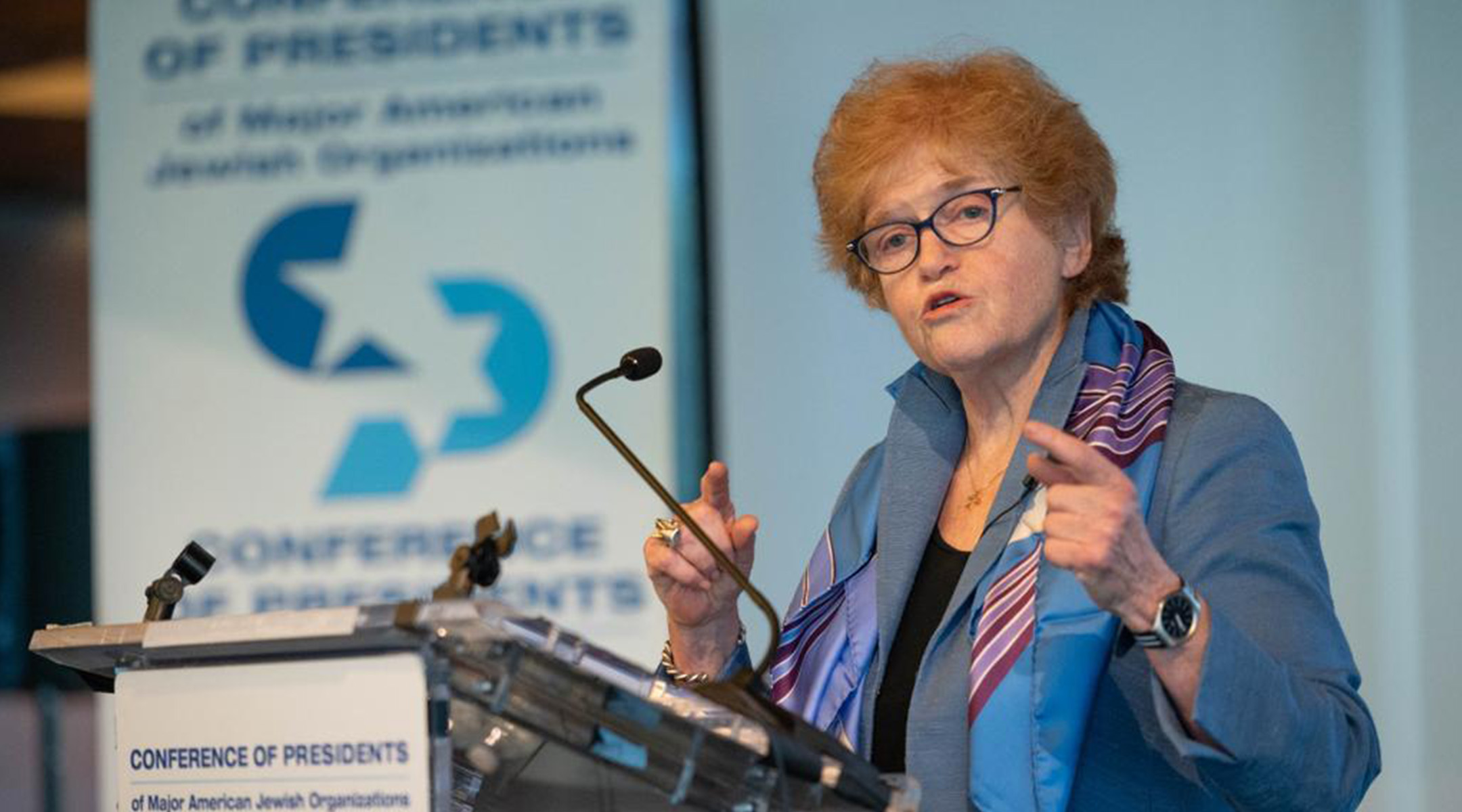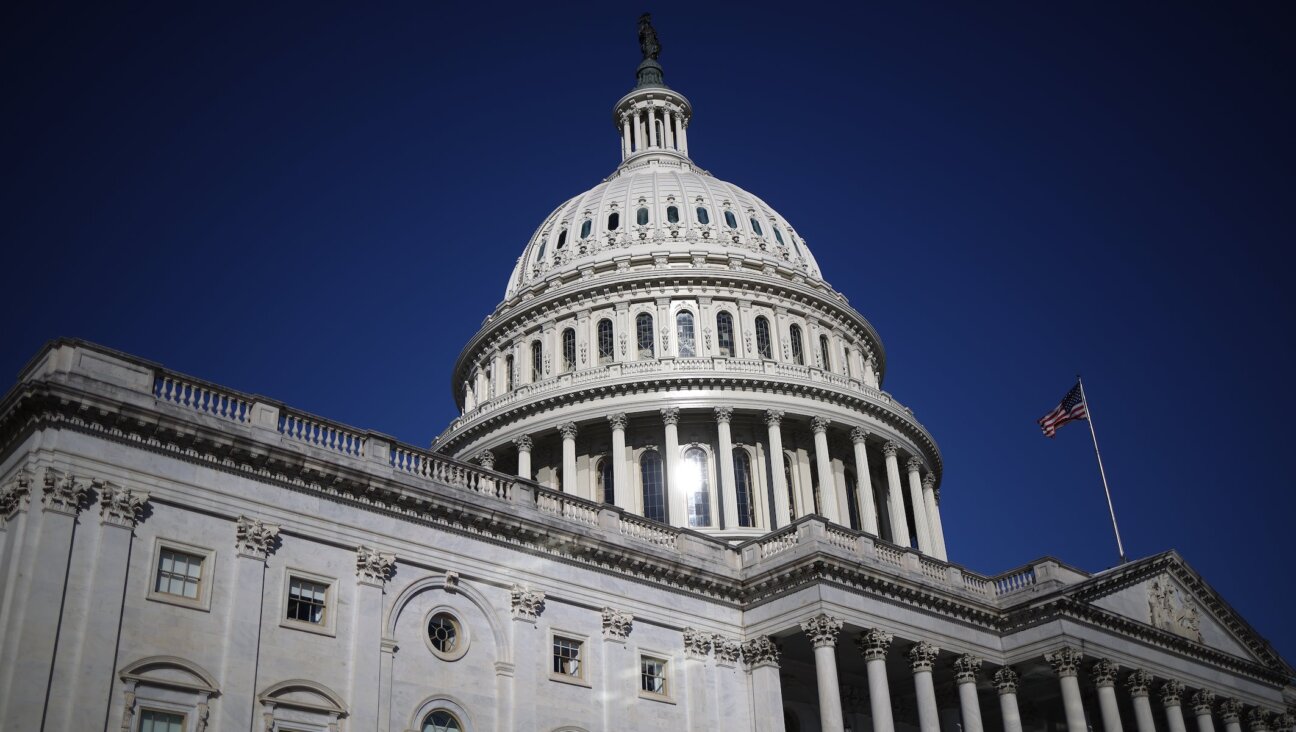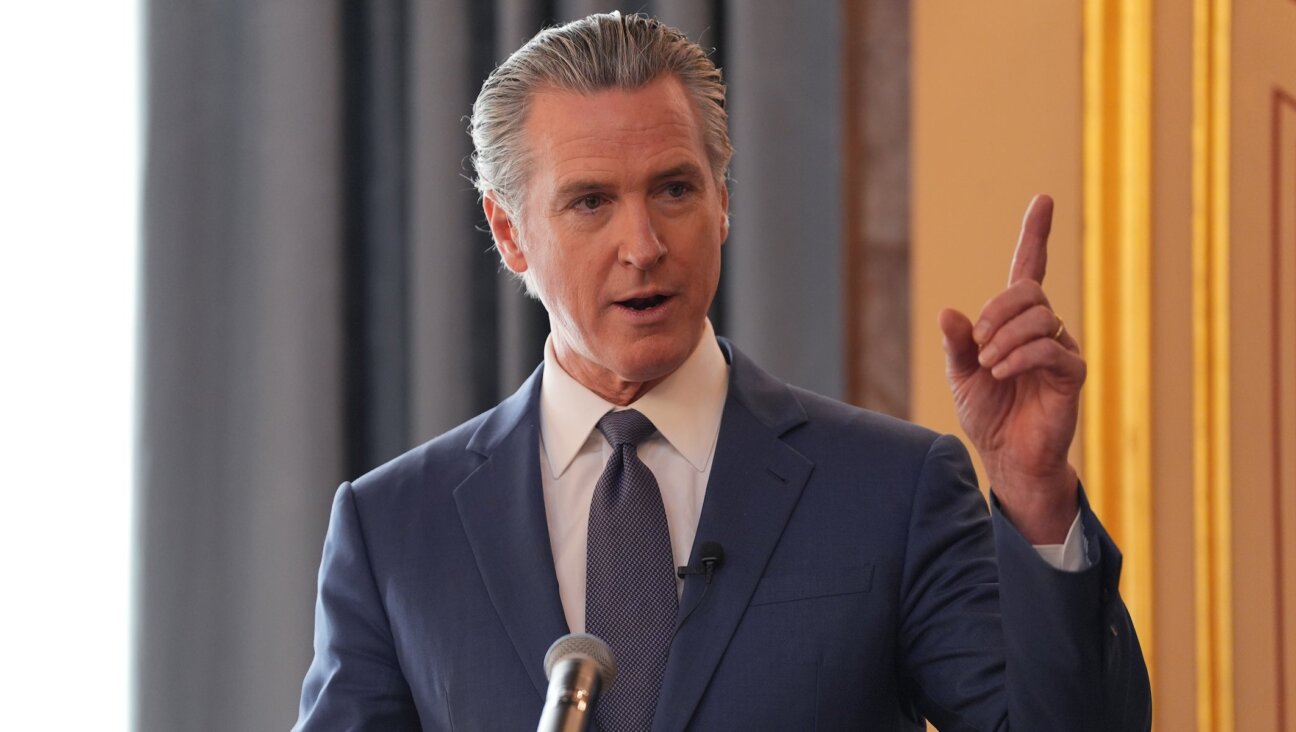Deborah Lipstadt struck by ‘speed and intensity’ of Hamas atrocity denial
Lipstadt, the Biden administration’s antisemitism envoy and a Holocaust scholar, said she’s disturbed by people claiming that Hamas did not commit various atrocities on Oct. 7

Graphic by Angelie Zaslavsky
Deborah Lipstadt, who rose to fame combating Holocaust denial, said Monday she was disturbed about how many people are denying that Hamas committed atrocities in its Oct. 7 terrorist attack in southern Israel.
“The reach, the speed of the rewriting of history — or of current, contemporary events, is awesome in the worst kind of way,” said Lipstadt, who now serves at the Biden administration’s envoy for combating international antisemitism. “If history can be rewritten so quickly nothing is safe.”
Hamas militants breached the barrier surrounding Gaza and killed an estimated 1,200 people in a surprise attack on military posts, kibbutzim and towns near the border. While few people deny that any attack by Hamas took place, some have defended the perpetrators by falsely claiming they were primarily focused on military targets, such as Israeli soldiers. Some have also falsely claimed that the Israeli military itself perpetrated some of the worst massacres.
Others have questioned the veracity of reports that some victims were raped or beheaded by Hamas fighters.
A student group at Queens College, for example, posted on Instagram that there was “ZERO evidence that Palestinians deliberately killed women and children. There is a great deal of video evidence that they deliberately *avoided* targeting women and children.”
On Monday, the Palestinian Authority deleted an Arabic-language statement claiming that Israeli helicopters were responsible for the massacre of hundreds of civilians at the Nova music festival near the Gaza border. The claim has circulated widely after Israeli media reported that a military helicopter responding to the violence had “also hit some festival participants.”
Lipstadt said that it was “very hard to fight” denial but that relying on evidence created by the perpetrators was one tool. The Israeli government has been screening a compilation of video clips documenting violence on Oct. 7, including some taken by Hamas terrorists.
But Lipstadt said she wasn’t necessarily recommending that approach.
“I’ve been offered the chance to see it and I haven’t taken it up,” she said. “I don’t think I could.”
Background in fighting Holocaust denial
Lipstadt is a professor whose public profile grew in 1996 when she fought a legal claim by David Irving, the British conspiracy theorist. Irving sued Lipstadt claiming that she had libeled him for writing about his denial of the Holocaust. Lipstadt and her legal team defeated Irving in court during a trial that was dramatized in a 2016 film.
Lipstadt, at a roundtable with Jewish media reporters Monday at the State Department, said it was hard to convince people that Holocaust denial was a serious issue during the 1990s.
“They said, ‘No one believes that stuff,'” she recalled. “And then five, six years later the same leading scholars came to me and said, ‘I was wrong. You were right.'”
But Lipstadt said that she’s seeing baseless attempts to undermine accounts of the Hamas attacks come much more quickly than Holocaust denial initially did. She acknowledged that reaction to the Oct. 7 attack was also caught up in a “geopolitical crisis.” Israel has killed more than 11,000 Palestinians during air strikes and a ground invasion of Gaza, according to health officials in the enclave, which is controlled by Hamas.
Despite these differences, Lipstadt said the parallels between those questioning what took place on Oct. 7 and Holocaust denial still unsettle her.
“What disturbs me is this willingness to say, ‘Oh those are Jewish claims,’ to dismiss those,” she said.
















